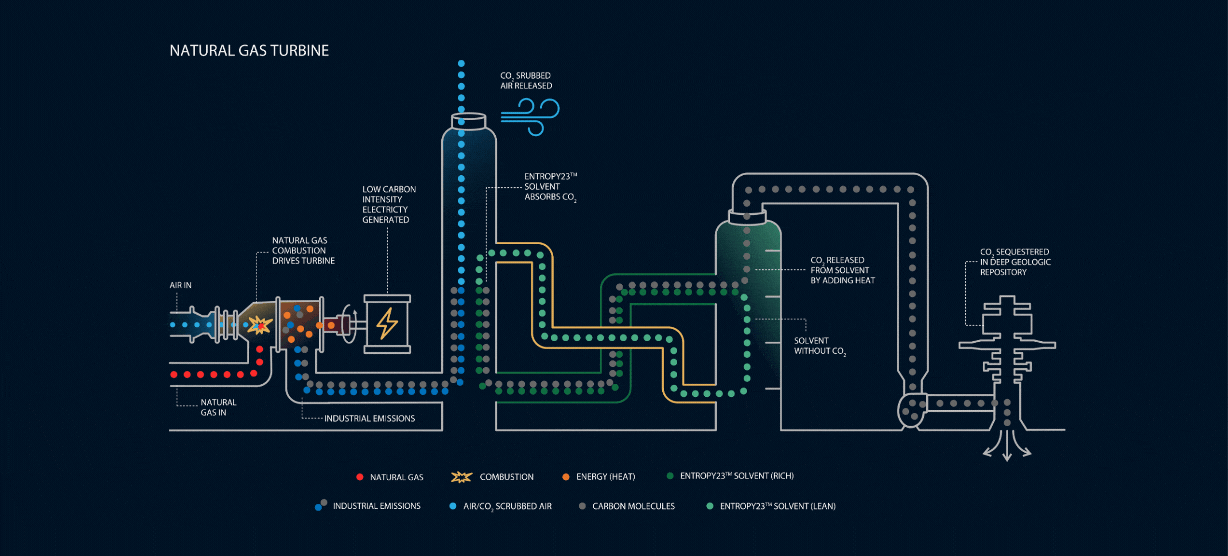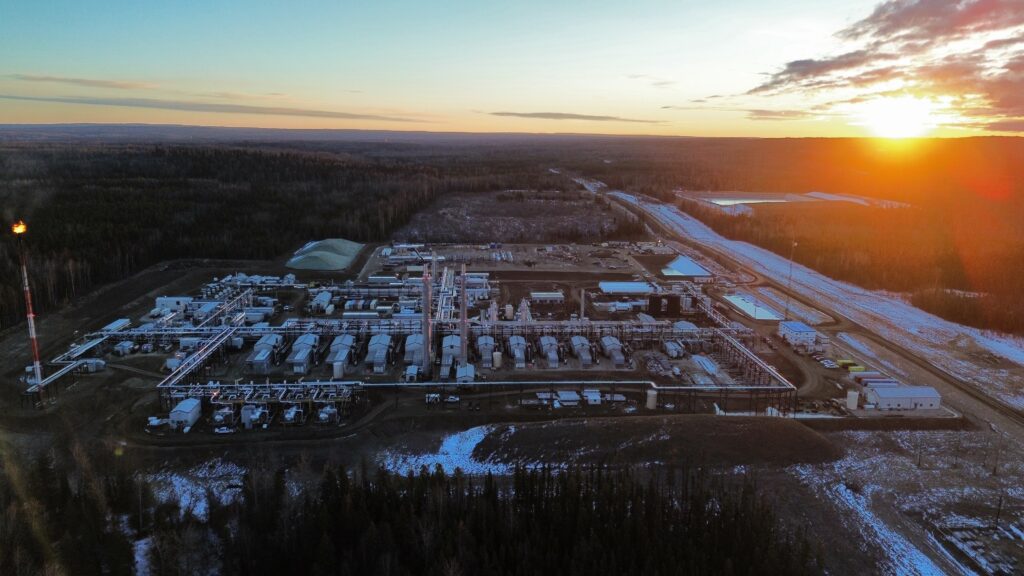By Devyn Barron, Communications and Social Media Manager, Net Power
Energy customers need more reliable power with a clearer path to decarbonization. Given the staggering forecast for growing energy demand, Net Power sees an opportunity to utilize its extensive clean power experience and valuable resources to accelerate the deployment of cost-competitive carbon capture solutions that are ready today.
Net Power’s recent press release announced a signed letter of intent with Entropy to deploy Entropy’s post-combustion capture (PCC) technology for clean firm power projects in the United States. Additionally, Net Power shared its plans to deploy this solution on Net Power’s existing sites, starting with its Project Permian location in West Texas, where it is targeting first clean power in 2028.
The addition of a post-combustion technology to Net Power’s suite of solutions makes the company ready to deploy clean gas generation this decade, ahead of the competition.
Interview with Net Power’s President & CEO, Danny Rice
I interviewed Net Power’s CEO, Danny Rice, to learn more about the partnership with Entropy and what it means for Net Power and the United States power sector.
What is post-combustion capture and how does it work?
Post-combustion capture (PCC) is a technology that removes carbon dioxide (CO₂) after fuel has been combusted to produce electricity. When a power plant combusts the fuel, it produces exhaust gas made mostly of water vapor (steam), nitrogen, and carbon dioxide. Entropy’s solvent is designed to selectively bind with the CO₂ in the exhaust. As the exhaust gas flows through a tower, the solvent absorbs the CO₂ molecules. The cleaned, or “scrubbed,” air—now mostly steam and nitrogen—is then released back into the atmosphere.
The captured CO₂ is separated from the solvent, compressed, and transported so it can be permanently stored deep underground or used in industrial processes. [For more information about carbon management, click here.]
What makes Entropy’s solution quite unique is that it’s commercially proven; Entropy has been continuously operating their PCC solution for several years, at the Glacier carbon capture facility, which gives us great confidence in accelerating its commercialization for U.S. power projects.

Why do you think Net Power is positioned to succeed in deploying PCC?
Decarbonizing firm, reliable power generation has always been our mission, and we’ve long believed the right solution would utilize natural gas. Since Net Power’s inception, our world-class team has focused all their efforts on the development of our proprietary oxy-combustion clean gas power cycle. Interestingly, much of our experience and assets also work for PCC applications. For both, you need to know thermal power generation facilities, you need to know subsurface geology for carbon storage, and lastly you need to know where these solutions can be deployed safely, timely and economically. Our partnership with Entropy brings together two complementary skillsets, ours on power generation and large-scale clean power development, and theirs on PCC technology and operations. This combination enables the commercialization of clean firm power generation on an accelerated timeline that neither company could achieve on its own. In fact, the development of our first project together is already underway, and we intend for this project to be the first commercial clean gas power plant operating in the U.S. when it comes online later this decade, years ahead of the competition.
You mentioned your first project. Where will it be located and where else is Net Power looking to deploy future plants?
Our first project will be in West Texas where we’ve already selected the site and our grid interconnect is underway. This site was previously secured for our oxy-combustion solution, but now we can fast-track its use with the PCC solution. One of our other early project locations is in the northern MISO region, an area that’s facing a shortage of new reliable power. For these projects as well as future ones we’ll originate over the coming years, we intend to develop each of them in multiple phases. For example, the first phase of our West Texas project is designed for 60MW coming online in 2028 while the overall West Texas project is being designed for up to 1,000 MW online by the early 2030’s—enough electricity for roughly 876,000 homes per year.
How is rising power demand influencing Net Power’s strategy, and what excites you most about how the company is responding?
First and foremost, I believe everyone deserves access to cleaner, affordable, reliable power. However, there’s no single form of energy on earth that does all three well at scale, and therefore there’s tradeoffs with each. The stunning growth we’re seeing in power demand for data centers, however, is straining the power sector’s ability to deliver affordable, reliable power. We need to build more reliable, affordable power, and the only realistic solution is building more natural gas power generation. But with that, we lose some of our ability to deliver a cleaner energy future. The hyperscalers have committed to a cleaner energy future, and in in a market that’s increasingly short on clean reliable power, PCC allows us to meet this demand sooner. By expanding our suite of solutions to include PCC, we radically improve our chances to achieve our mission – to transform natural gas into the lowest cost form of clean firm power – while giving people exactly what they want – access to cleaner, affordable, reliable power. Being able to give everyone what they thought was not obtainable this decade? That’s what I’m most excited about, and that’s what we aspire to do at Net Power.
“Hyperscalers have committed to a cleaner energy future, and in a market that’s increasingly short on clean reliable power, PCC allows us to meet this demand sooner.” – Danny Rice, President & CEO, Net Power
To learn more about the addition of PCC at Net Power, you can check out the slide deck from Net Power’s Q3 2025 earnings call.
Media contact: media@netpower.com


 Net Power on LinkedIn
Net Power on LinkedIn Net Power on X
Net Power on X
